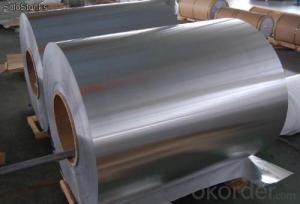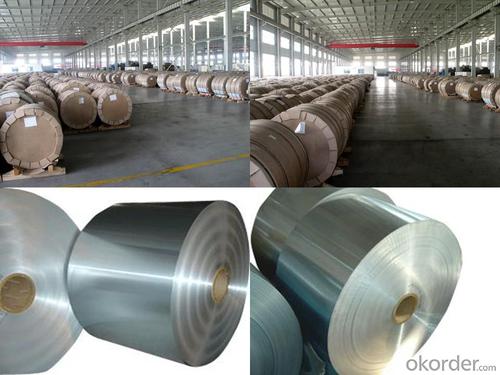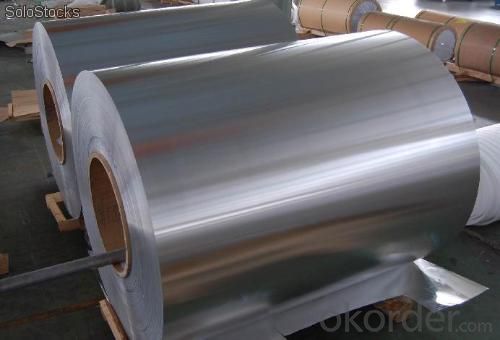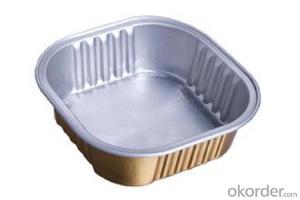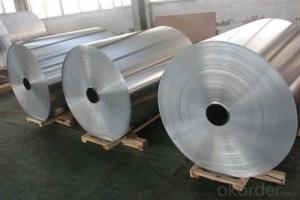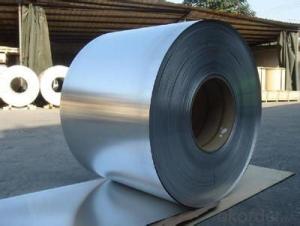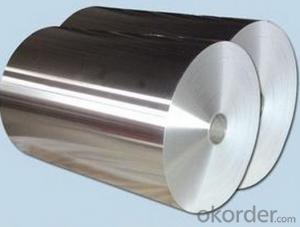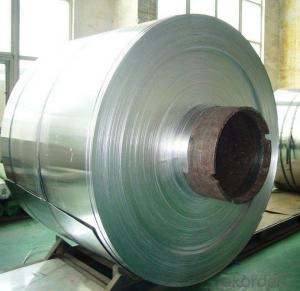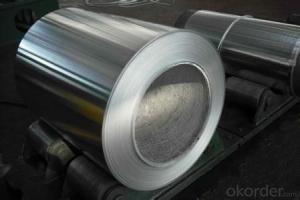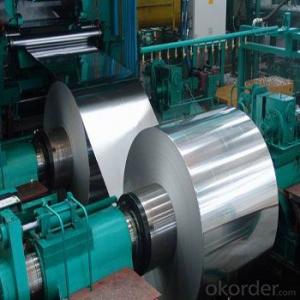6061 Aluminum Coil - Roll of Aluminum 3003 H14 /1100 H14
- Loading Port:
- Shanghai
- Payment Terms:
- TT OR LC
- Min Order Qty:
- 5 m.t.
- Supply Capability:
- 100000 m.t./month
OKorder Service Pledge
OKorder Financial Service
You Might Also Like
1.Structure of Roll of Aluminum 3003 H14 /1100 H14
Roll of Aluminum 3003 H14 /1100 H14 is designed for many field such as electronics, instruments, lighting decoration, packing industry, and house decoration, curtain wall, honeycomb-core panel, sandwich panel, aluminum composite panel, aluminum composite pipe etc.. Roll of Aluminum 3003 H14 /1100 H14 is hard and everlasting under the blazing sun. You can choose the alloys as your habitation and we will do our best to meet your requests.
2.Main Features of the Roll of Aluminum 3003 H14 /1100 H14:
• Smooth surface
• High manufacturing accuracy
• High strength of extension and yield
• Well packaged
• No marks, no scratch, no excessive oil
3. Roll of Aluminum 3003 H14 /1100 H14
Alloy: 1050, 1060, 1070, 1100, 3003, 3004, 3005, 3105, 5052, 5083, 5754, 8011, 8006
Temper: H14, H16, H18, H22, H24, H26, H32, O/F
Thickness: 0.2mm-100mm
Width: 30mm-1700mm
4. Production of Roll of Aluminum 3003 H14 /1100 H14
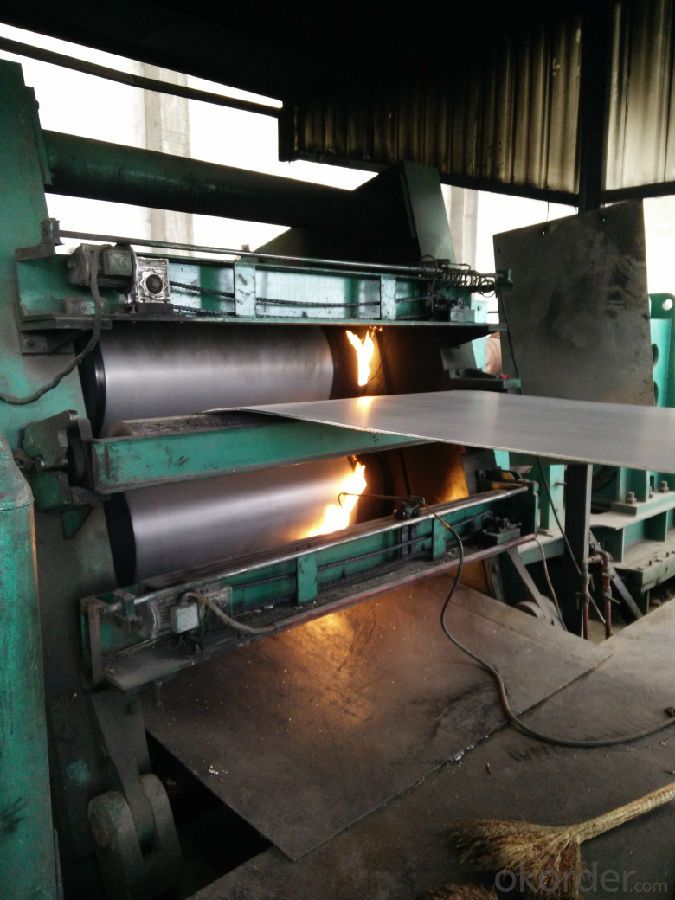
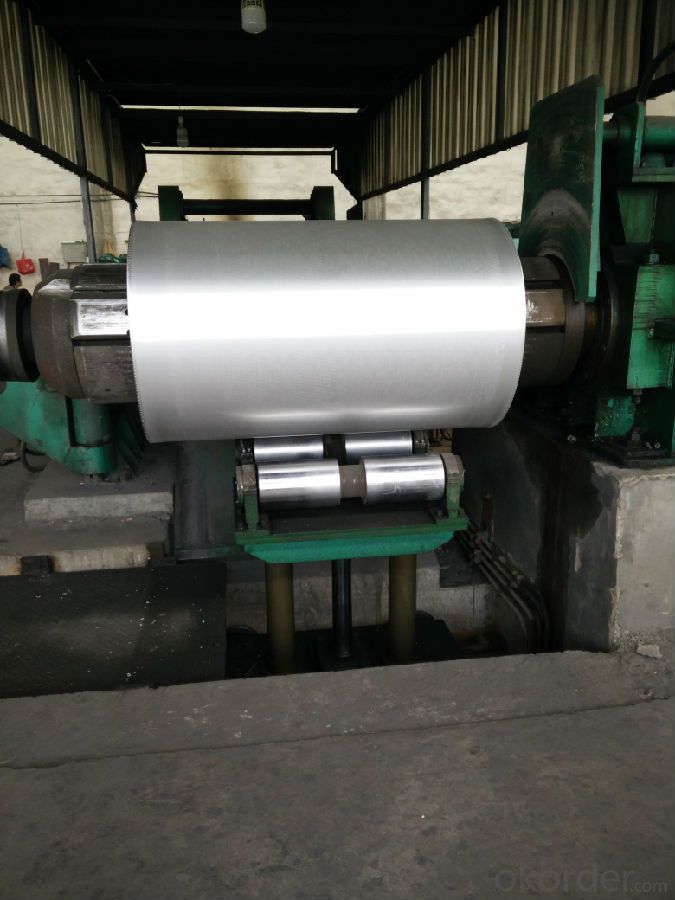
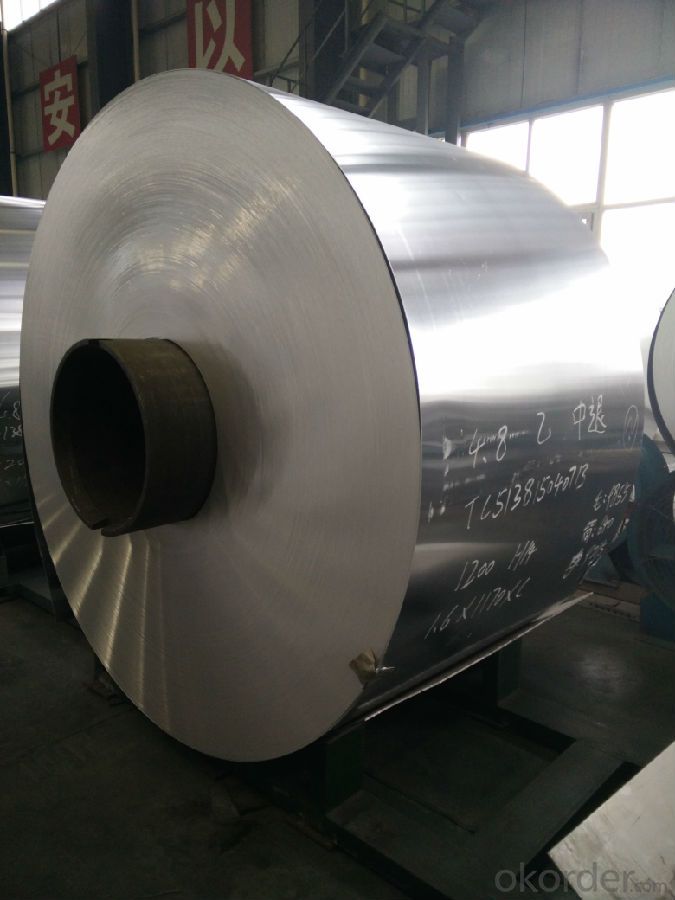
5.FAQ
We have organized several common questions for our clients,may help you sincerely:
① How about your company?
A world class manufacturer & supplier of aluminum coil and alloy blanks. Aluminum production base is comprised of 18 aluminum annealers, 10 coil and foil mills, 4 continuous production lines, 2 hot rolling production line and 3 prepainted lines.
Export 5000 tons per month to Asia, America and Middle East. Always do the best for our clients.
②Can you guarantee the quality of the products?
We are responsible for the quality of materials to get a long-term cooperation with clients in a reasonable period of time and we are glad to arrange and coordinate any third party inspection for you.
③What is the delivery time after purchase?
35 day after receiving client’s deposit or correct LC
- Q: Can aluminum coils be used in refrigeration systems?
- Yes, aluminum coils can be used in refrigeration systems. Aluminum is a common material choice for evaporator coils in refrigeration systems due to its excellent heat transfer properties, corrosion resistance, and lightweight nature.
- Q: Can aluminum coils be used for nameplates and labels?
- Yes, aluminum coils can be used for nameplates and labels. Aluminum is a versatile and durable material that can be easily shaped, engraved, or printed on. It is commonly used for manufacturing nameplates and labels due to its resistance to corrosion, lightweight nature, and ability to withstand harsh environments.
- Q: Can aluminum coils be used in heat exchanger fins?
- Indeed, heat exchanger fins can utilize aluminum coils. Aluminum is widely preferred for heat exchangers owing to its remarkable thermal conductivity, lightweight properties, and resistance to corrosion. By incorporating aluminum coils into heat exchanger fins, the transfer of heat between two fluids becomes highly efficient, making it an ideal material for this specific purpose. Moreover, aluminum coils can be effortlessly shaped into different fin configurations, which allows for design flexibility and maximizes the surface area for heat transfer. All in all, aluminum coils are commonly employed in heat exchanger fins to boost heat transfer efficiency and enhance the overall performance of the heat exchanger system.
- Q: Can aluminum coils, which are typically used for industrial purposes, be utilized for baking pizza?
- <p>Aluminum coils, commonly used in industrial applications, are not recommended for baking pizza. While aluminum is a good conductor of heat and can be used in baking, aluminum coils are often too thick and not designed for direct contact with food. They may also contain coatings or treatments unsuitable for food. Instead, use aluminum foil or a pizza stone designed for baking to ensure food safety and even heat distribution.</p>
- Q: Are aluminum coils available in custom sizes?
- Yes, aluminum coils are available in custom sizes.
- Q: Can aluminum coils be used in telecommunications infrastructure?
- Yes, aluminum coils can be used in telecommunications infrastructure. Aluminum is a lightweight and durable material that is commonly used in various industries, including telecommunications. The use of aluminum coils in telecommunications infrastructure offers several advantages. Firstly, aluminum is a cost-effective material compared to other metals like copper. It is readily available and has a lower price point, making it a preferred choice for many telecommunications companies. Additionally, aluminum coils are lighter in weight, which makes them easier to handle and install, reducing the overall labor and transportation costs. Moreover, aluminum has excellent electrical conductivity, making it suitable for transmitting data signals in telecommunications networks. Aluminum coils can effectively carry electrical current, ensuring efficient data transmission without any significant loss in quality. This conductivity enables reliable and high-speed communication over long distances. Another advantage of using aluminum coils in telecommunications infrastructure is their resistance to corrosion. Aluminum naturally forms a protective oxide layer when exposed to air, preventing it from rusting or corroding easily. This resistance to corrosion ensures the longevity and durability of the infrastructure, reducing maintenance and replacement costs over time. However, it is important to note that aluminum has a lower tensile strength compared to copper. Therefore, proper engineering and design considerations need to be taken to ensure the structural integrity of the infrastructure when using aluminum coils. Additionally, specific connectors and hardware compatible with aluminum may be required. In conclusion, aluminum coils can be effectively used in telecommunications infrastructure due to their cost-effectiveness, lightweight, electrical conductivity, and resistance to corrosion. Proper planning and design are necessary to ensure the successful implementation of aluminum coils in telecommunications networks.
- Q: The choice between Vinyl and Aluminum? By Mastercraft Exteriors
- Are you asking what I think is better? It really depends on your house your neighborhood and your pocket book. I myself prefer vinyl. Aluminum will dent. A stone from the lawn mower can dent it. Not everytime but it can and over time I guarantee it will. So will that baseball the neighborhood kid throws, (because your child would never do that). Both should be available in the insulation backed version of the product if not through them then through another contractor. So if R-values are a deciding factor you can get about the same from either product. There is a lot more versatility with vinyl around windows and corners.
- Q: How are aluminum coils tested for quality control?
- Aluminum coils are tested for quality control through various methods including visual inspection, dimensional checks, surface roughness analysis, mechanical property testing, and chemical composition analysis. These tests ensure that the coils meet the required specifications and standards, guaranteeing their quality and suitability for their intended applications.
- Q: Is it possible to customize the dimensions of aluminum coils?
- Yes, it is possible to customize the dimensions of aluminum coils. Aluminum coils can be fabricated and cut to specific dimensions according to the requirements and specifications of the customer. The customization process involves precise cutting and shaping of the aluminum coil to achieve the desired dimensions. This allows for flexibility in various industries and applications where specific coil sizes are necessary. Customizing the dimensions of aluminum coils ensures that they can fit seamlessly into different production processes, machinery, or end-use applications.
- Q: What are the elements and compounds that make up aluminum coils?
- <p>Aluminum coils are primarily composed of the element aluminum (Al), which is a lightweight, silvery-white, and ductile metal. Pure aluminum is relatively soft, so it is often alloyed with other elements to improve its strength and durability. Common alloying elements include copper, magnesium, manganese, silicon, and zinc. These elements can enhance properties like strength, formability, and resistance to corrosion. The specific composition of an aluminum coil can vary depending on the alloy type and the intended application, but the primary component will always be aluminum.</p>
Send your message to us
6061 Aluminum Coil - Roll of Aluminum 3003 H14 /1100 H14
- Loading Port:
- Shanghai
- Payment Terms:
- TT OR LC
- Min Order Qty:
- 5 m.t.
- Supply Capability:
- 100000 m.t./month
OKorder Service Pledge
OKorder Financial Service
Similar products
Hot products
Hot Searches
Related keywords

